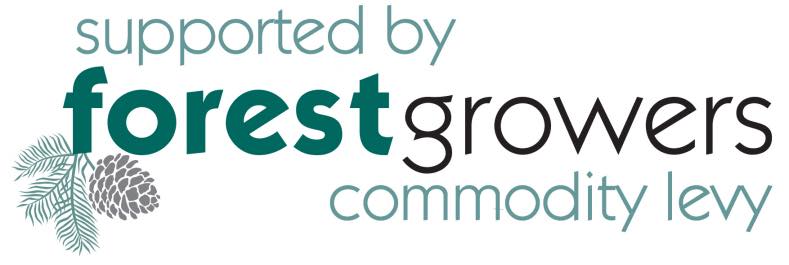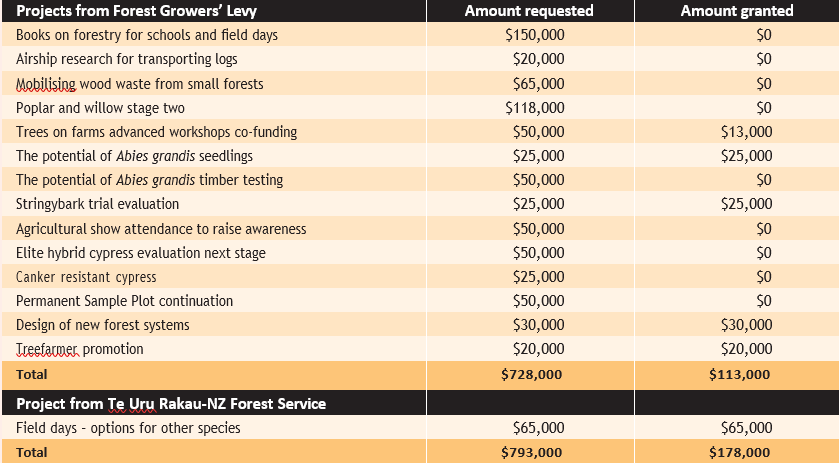
This is free.
The final cut for grant projects in 2024
Julian Bateson, New Zealand Tree Grower February 2024.
This year has been different.
In the November Tree Grower you may remember the article about the applications for grants from the Forest Growers’ Levy and from Te Uru Rakau-New Zealand Forest Service for work in 2024.The applications were on behalf of the NZFFA for small-scale forest owners. The table below reminds you what was applied, for with the figures in the right hand column showing the amount granted.
It does not take a genius to see that of the nearly $800,000 applied for, less than $200,000 was granted. We did not expect to get all that was requested, after all, they are contestable funds. But it does mean that a substantial number of important projects now cannot proceed in 2024.The income from the Forest Growers’ Levy is expected to be 10 per cent lower in 2024, so a small reduction in available funds had been expected, but not to the extent shown in the table. Below are brief summaries of the grand-aided projects which will be able to proceed in 2024.
Alternative species field days
Te Uru Rakau-NZ Forest Service has contracted the NZFFA to run a series of 20 field days around the country, demonstrating the success of alternative species. Each field day will focus on tree species which have proved successful in that region, and what that species needs in terms of location establishment, weed and pest control and management.
Improving yields of Abies grandis
Abies grandis might be a good commercial substitute for radiata pine should the latter ever succumb to pathogens.
A. grandis in New Zealand appears to be as productive as radiata pine, although it is hard to say if it will perform as well everywhere. Few stands were ever planted, and a research project in 2023 collected seeds to see if it could be successfully propagated and planted more widely. Early trials were not as successful as hoped. Appleton’s nursery in Wakefield has now employed a manager from Oregon with experience in successfully growing A. grandis from seed.

Evaluation of historic eucalypt stringybark trials
In 2004 and 2005 the Eucalypt Action Group organised a series of trials across the country to determine the survival of a range of stringybark eucalypt species under different conditions.This proposed project will obtain the data from the surviving trials from for further analysis. All the stringybark eucalypts produce naturally durable wood over a range of durability classes.
The redesign of forest systems
The aim of the project is to provide confidence in the future redesign of forest systems, particularly their role in mitigating climate change effects.This project will help form a working group to consult across a diverse expert group.The results will be recommendations on knowledge gaps in the short term and a plan to collect appropriate information for the long term.
Promoting TreeFarmer
TreeFarmer was developed over the last four years with the aim of improving the afforestation and harvesting experience of small-scale forest growers. It achieves this by raising the grower’s awareness of the issues, costs, risks and opportunities they will encounter with tree planting and harvesting on their property.
This project will apply resources to promoting and demonstrating TreeFarmer to gain greater uptake and benefit. It will include developing publicity material, updating support material such as a user manual and tutorial as well as training demonstrators at extension workshops and field days.

 Farm Forestry New Zealand
Farm Forestry New Zealand